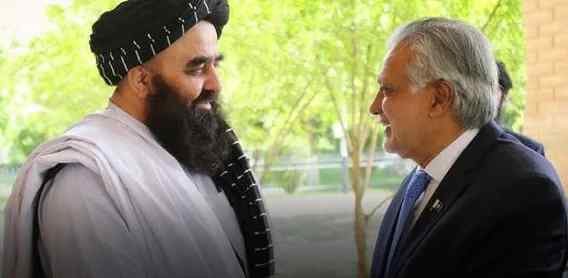Efforts to improve strained ties between Pakistan and Afghanistan have hit a snag as Afghan Taliban Foreign Minister Amir Khan Muttaqi’s anticipated trip to Islamabad has been postponed — not by diplomatic disagreements, but by international sanctions.
According to credible sources, Muttaqi’s three-day visit, initially scheduled to begin on August 4, was held back due to United Nations Security Council (UNSC) travel restrictions. As a sanctioned individual under the UNSC’s list, Muttaqi requires explicit waivers to travel internationally — something that was not granted in time for this visit.
UNSC Sanctions Block Trip, Not Technicalities
While Pakistani officials publicly attributed the delay to “technical reasons,” insiders confirm that the UNSC’s failure to approve a travel exemption was the actual roadblock. Pakistani diplomats are reportedly lobbying behind the scenes to secure permission from the UN body to facilitate the visit, which was intended to rekindle dialogue on a number of pressing bilateral concerns — including border security, trade, and refugee management.
A Rare Denial Despite Past Approvals
Muttaqi, who has previously been allowed to represent the Taliban government abroad — notably in Moscow and Beijing — appears to have been denied travel clearance for the first time since the Taliban returned to power in 2021. Several senior Taliban leaders remain under similar restrictions, but the denial of a waiver for such a high-profile diplomatic engagement suggests a shift in the international community’s posture.
Policy analysts view the move as an intentional signal from the UN to increase pressure on the Taliban government over unresolved global concerns, ranging from human rights to inclusive governance.
Talks Still on the Table — For Now
Despite the postponement, neither side has cancelled the visit. A spokesperson from Pakistan’s Foreign Office confirmed that discussions were ongoing to finalize new dates for the trip. “There is no question of delay or cancellation,” the official said, suggesting that diplomatic channels remain open.
The delay underlines the complex balancing act for countries like Pakistan, which are attempting to engage with Afghanistan’s de facto rulers while navigating international sanctions and political sensitivities.

